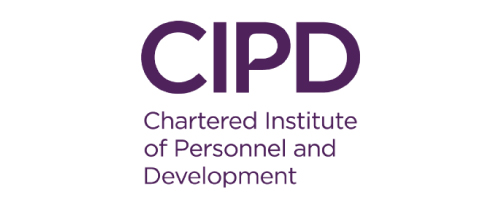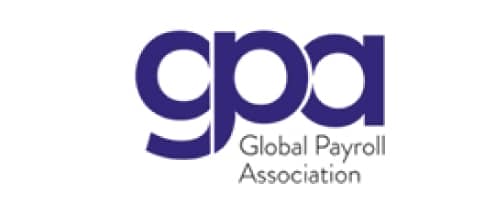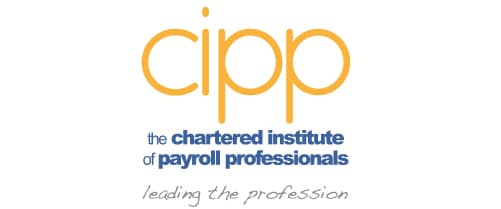
Payroll and HR in Bulgaria
The International HR & Payroll Company
That Speaks Your Language
At IRIS Global Workforce Management, we’ll make sure your Bulgaria payroll and HR feels simplified. As a trusted and leading global payroll and HR specialist, we have 88 in-country teams available to help get your international employees paid on time, every time.
Global payroll and HR in Bulgaria can seem challenging, especially as compliance is always a top priority for businesses during any global expansion. Without expert understanding of the differing laws, cultures and regulations, it can feel overwhelming to stay on top of it all. Fortunately, our team of specialists are available to help you navigate any payroll and HR inquiries. We offer:
Looking for Payroll and HR Services?
Bulgaria Payroll
We take away any complexity and ensure your every aspect of global payroll is managed – from local pay to benefits. Through our payroll support, your overseas employees will get paid accurately, on-time, every time.
Bulgaria HR
Companies can trust IRIS for expert HR services that support their global employees. Our services are essential when it comes to legislation and compliance. Our HR support is designed to help your global business thrive.
Bulgarian Employment Law Compliance
IRIS helps businesses onboard their talent with a focus on compliance. We can help with contracts, policies, handbooks and more.
Global Payments Services
Regardless of your industry, we’ll make your global payment services compliant. This means we’ll make your cross-border transfers cost-effective.
Jump to section
Location Data
- Name
Bulgaria
- Region
- Europe (Eastern Europe)
- Population
- 6927288
- Calling Code
- 359
- Capital
- Sofia
- Timezone(s)
- UTC+02:00
- Timezone in Capital
- (europe/sofia) 2:12 PM
- Currency
- Bulgarian lev (BGN)
$1 = лв1.86 - Main Language
- Bulgarian(български език)
- Other Business Languages
- Bulgarian, English, German, French
- Tax Year Start
- 1st January
- Tax Year Start
- 31st December
Details correct at time of publication. You should not rely on these details without first seeking professional international advice.
A trusted advisor for global expansion
We support businesses in 135 countries worldwide to reach their expansion goals.
After a somewhat turbulent political past, democratic changes began taking place in Bulgaria at the end of the 1980s. Since then the country has evolved economically, and in more recent years has seen a dramatic increase in revenue derived from tourism, thanks to growing popularity as a ski and summer break destination. Other sources of Bulgarian income come from chief exports; fuels, clothing, footwear, machinery and chemicals.
In its central, east-meets-west location, Bulgaria’s capital Sofia is an ideal hub city for international business. Sofia International Airport is located just 10km (6.2 miles) from the city centre, and offers direct flights to 80 destinations in 31 countries across Europe and the Middle East. The capital itself also offers a comprehensive transport system using trams, buses, trolleybuses and a metro. Services include easy links to the airport, and run efficiently from 5.30am until around 11pm.
Any business-owners considering expansion into Bulgaria must be familiar with the country’s legislation, including those relating to HR and payroll considerations. When hiring local employees or immigrant employees in Bulgaria, there are a number of employment laws to be aware of and adhere to. Understanding such legislation can cause apprehension and stress among business owners, who need to give due attention to every step of the expansion process. Avoid this by letting the experts at IRIS FMP give you the guidance you need.

Employer Must-Dos
In Bulgaria, the following must be submitted by employers:
- Annual Corporate Income Tax return
- Annual profits report
- Self-assessed statistical financial information (this does not have to be audited first)
Payroll in Bulgaria
What tax considerations are there?
Personal Income Tax (PIT)
Income tax in Bulgaria is set at a flat rate of 10%. This is applied to Bulgarian residents on all income – derived from national and international sources – and to non-residents on all income obtained in Bulgaria. ‘Income obtained in Bulgaria’ comprises that from Bulgarian and foreign companies, if the work is carried out in Bulgaria.
Corporate Income Tax (CIT)
Corporate income tax works in the same way as personal income tax, in that it is set at 10% and applies to resident and non-resident companies as explained above.

Understanding International Payroll
Read more about payroll law around the world with our comprehensive guide covering everything from maternity leave policies to local taxes.
HR in Bulgaria
What are the regular working hours in Bulgaria?
A normal working week in Bulgaria is 40 hours, which is worked across five days. Hours are usually between 9am and 6pm in the public and service sector, and between 8am and 5pm in industry. Lunch breaks must be a minimum of 30 minutes.
Vacation, maternity and sickness
After they have worked for 8 months for the same employer, employees in Bulgaria are entitled to 20 days of annual leave every year. This must be used within the calendar year. There is also an allowance of two days when/if an employee gets married, and two days for anyone who donates blood; the day of donation and the following day. In addition to this, there are 11 bank holiday days in Bulgaria on which employees are not expected to work.
Pregnant women in Bulgaria are entitled to 45 days of paid leave before their child’s due date and up to 410 days after this. In instances when the baby is born within the 45 days, any remaining days can be carried over and used after the birth. Maternity leave pay is paid for by the state as long as the woman in question has been working for at least one year, and they have made social security contributions. Pay is in the amount of 90% of the average salary earned during the preceding 24 months.
In the event of sickness, for the first three days an employee is incapacitated the employer will pay 70% of their average salary – upon receipt of a medical certificate. After this, the state will pay sickness benefits in the amount of 80% for ordinary cases, or 90% if the illness or injury has been caused by the occupation. To receive these benefits, an employee must have worked there for a minimum of six months.
Termination
The termination of an employment contract – by either party – can only occur after a minimum of 30 days notice. Notice periods cannot exceed three months though. Employers do have the right to terminate a contract with immediate effect, if the employee has acted unlawfully.
IRIS’s Bulgarian Payroll and HR Solutions
Business-owners with plans to expand to Sofia, Burgas, Plovdiv or another business hub in Bulgaria must make sure they achieve consistent compliance with Bulgarian employment law. With specific HR and payroll requirements to contend with, abate any fears by contacting the experts at IRIS. We have extensive knowledge in a wide array of international employment law. Our services include, but are not limited to:
- HR auditing
- HR Consultancy
- Translation services
- Multi-currency payroll
- Hard and soft copy payslips
- Payroll audits
- Payroll processing
- Maternity pay
- Sick leave pay
- Processing pensions
- Processing annual leave
- Payroll reconciliation
- Tax reports

Expert Advice on Bulgarian Employment Law from IRIS
Take some of the stress away from expanding your business to Bulgaria, and stay fully compliant with all local law with expert guidance from IRIS.





















